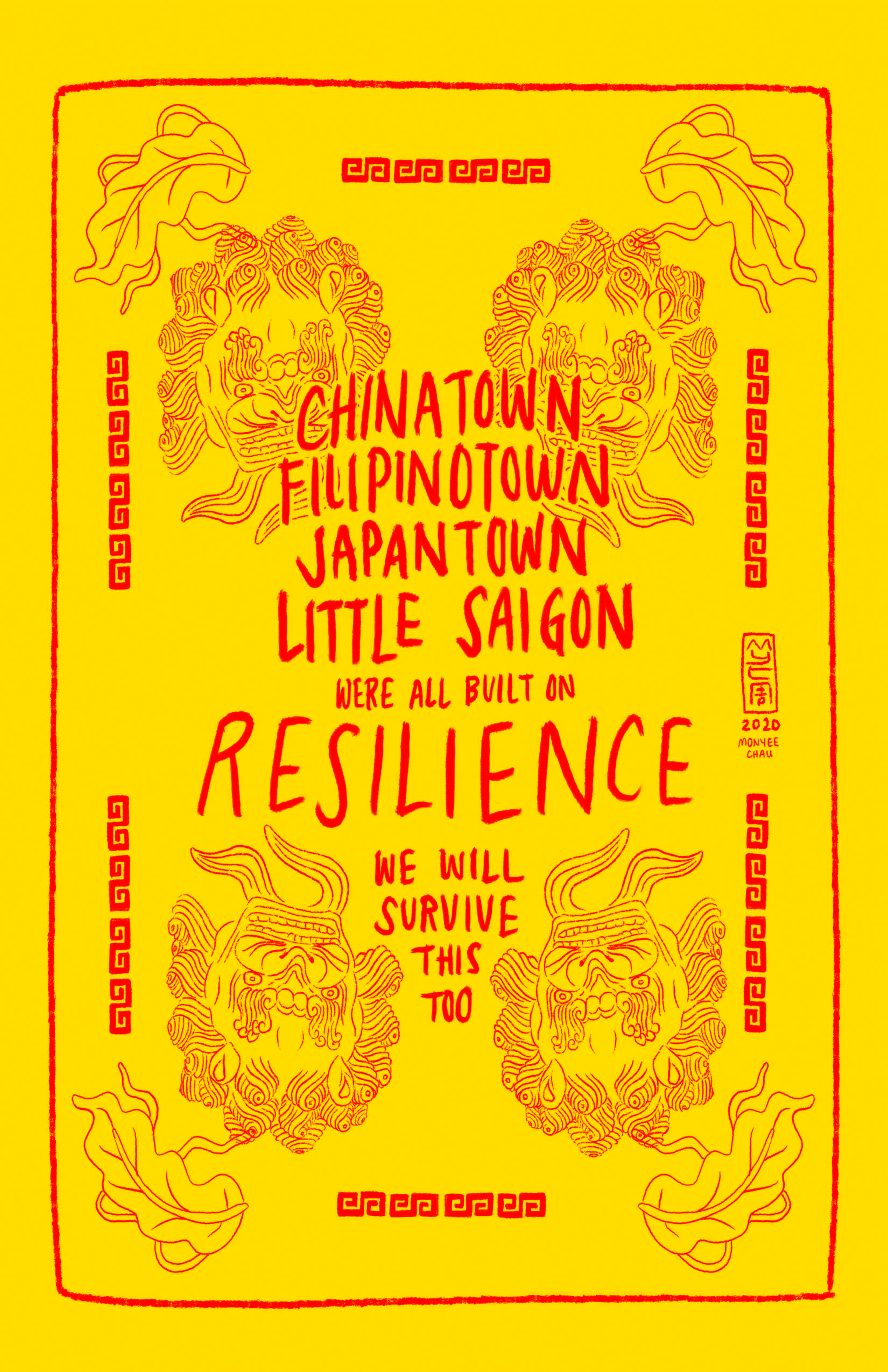Parts of this piece were drawn from the framing statement drafted by the A/P/A Voices Working Group; Lena Sze, Diane Wong, Vivian Truong, Laura Chen Schultz and Amita Manghnani
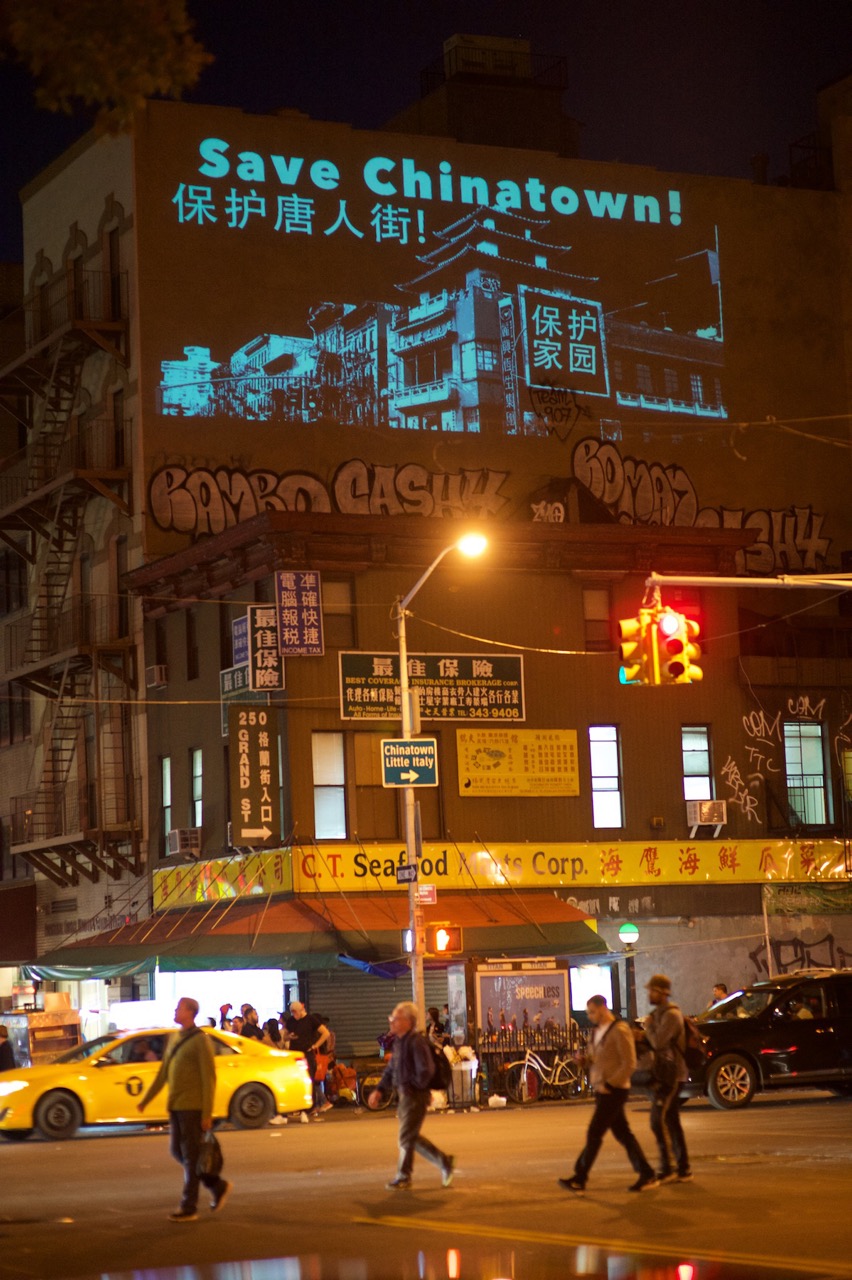
As the co-founder of the Chinatown Art Brigade, a cultural collective of Asian diasporic artists, I belong to a group of media makers and activists who have been fighting to protect and preserve the cultural memories of people and places facing the threat of erasure. Our work is centered in New York City's Chinatown and we acknowledge that any discussion of displacement must begin by honoring the past, present and future of the Lenape people, who are Lower Manhattan’s first inhabitants and the original stewards of the land that we have settled on.
Since the Chinatown Art Brigade’s founding in 2015, we have facilitated a series of cultural responses to gentrification, working closely with our partners, the Chinatown Tenants Union, a division of CAAAV: Organizing Asian Communities. We have staged large-scale light projections with messages fighting luxury development and adapted creative place-keeping strategies that don’t just preserve buildings but keep the memories that are embodied in our community spaces alive. By grounding this work in a process of social recall and lifting up the histories of resistance in NY Chinatown, we have used these storytelling platforms to mobilize support for tenants who are fighting to stay in their homes.
The work of the Brigade resonates deeply with this broader moment of social reckoning. The calls to remove and replace Confederate statues and monuments to white supremacy amidst global protests for racial justice involve a profound restructuring of what and who we value, how society honors the past and more specifically, what events are remembered and what events are intentionally forgotten and suppressed. Coming to terms with the past and redefining the ways that people and places will be memorialized in the future is at heart of these conversations about social change.
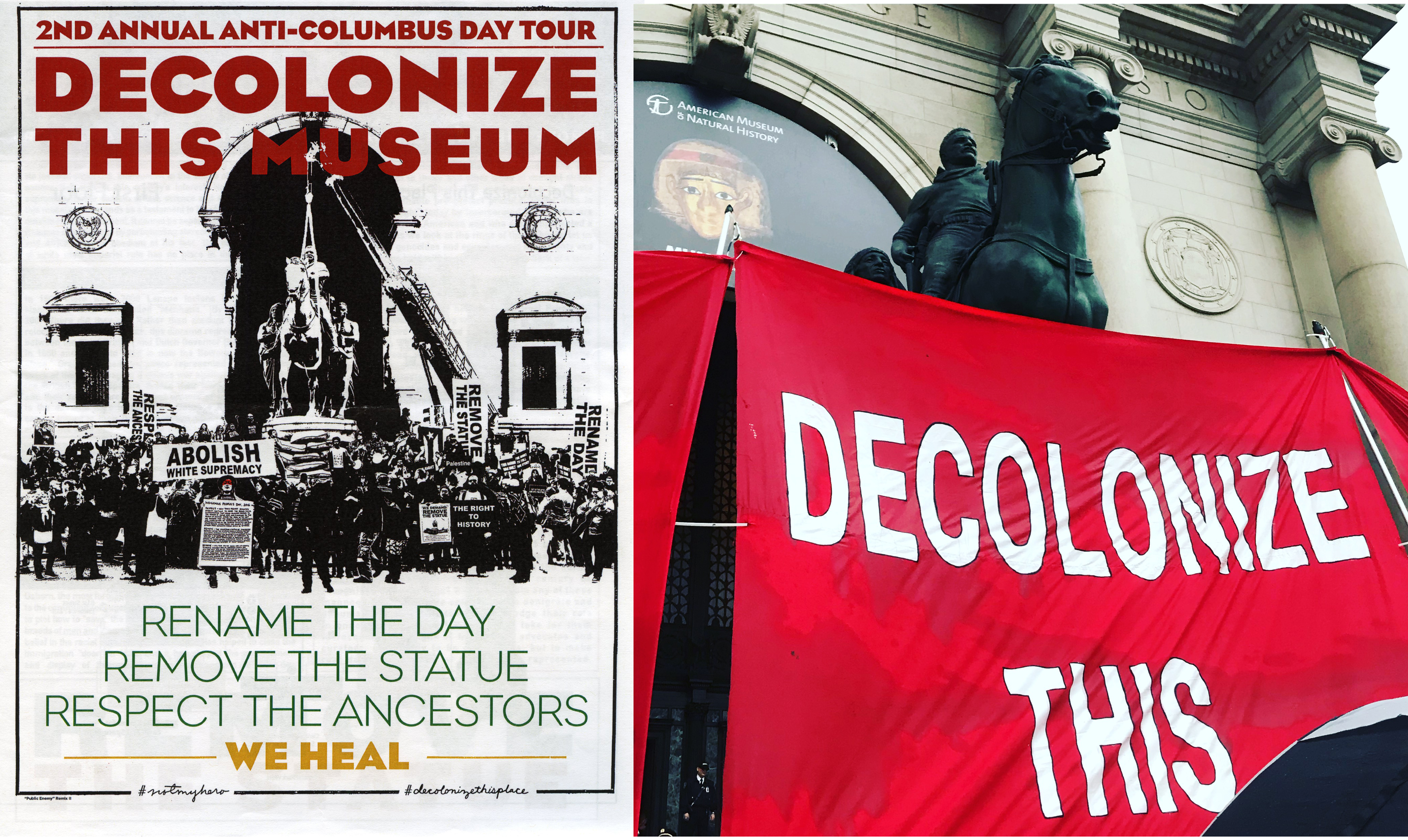
If removing racist monuments—as Andre Perry says,—is about "making history not erasing it", we need to look more critically at the museums, libraries, universities and government agencies that serve as repositories for our collective memories and how these institutional archives consolidate and reinforce narratives of power. The genealogical records, contracts, deeds, legal records and historical artifacts that can be found in these institutional spaces and the processes by which artifacts are contextualized and assigned archival value have established the archives as a site where power is continuously exercised and negotiated.
Since the onset of the pandemic, and in my capacity as a Fellow with the Monument Lab, I have helped to launch a public memory project that is committed to the radical rethinking of the archives as an activist practice. A/P/A Voices: A COVID-19 Public Memory Project, is an archive that was developed over a nine-month period, from March 2020 to the present, by a national team of cultural workers, oral historians, educators, and archivists in direct response to the COVID-19 pandemic. We envision the archives as a space that is open to a multiplicity of stories, experiences and voices that are actively engaged in reclaiming the power to name, document and grant access to the historical record.
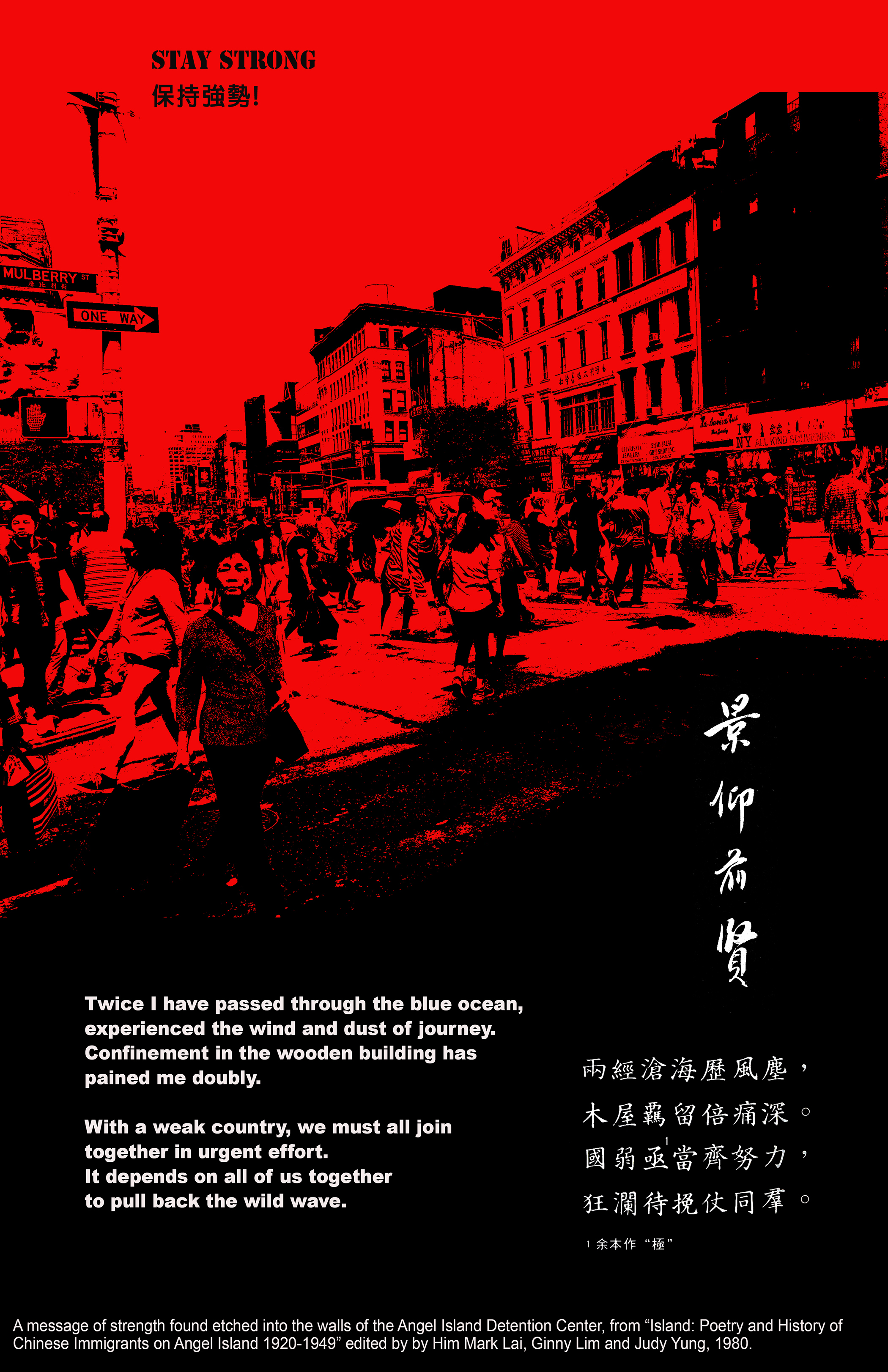
While social distancing protocols are in place, we have recorded over thirty remote interviews that reflect the complex and multi-faceted experiences that Asian Pacific American communities continue to face in the wake of the pandemic. These interviews include the stories of street vendors in New York, sex worker advocates in Queens, tenants fighting evictions in Chinatown, poets in LA, nail salon workers, nurses, mutual aid and food pantry workers and community organizers from across the country. We have also collected dozens of digital artifacts that include artwork, posters, political statements, zines, videos, podcasts, Instagram posts, and COVID toolkits that were submitted by people of Chinese, Japanese, South Asian, Cambodian, Korean, Arab, Thai, Fillipinx, Native Hawaiian and Vietnamese descent. We are currently collaborating with the A/P/A Institute and Tamiment Library Robert F. Wagner Labor Archives at NYU, to build a permanent home for this new digital collection.
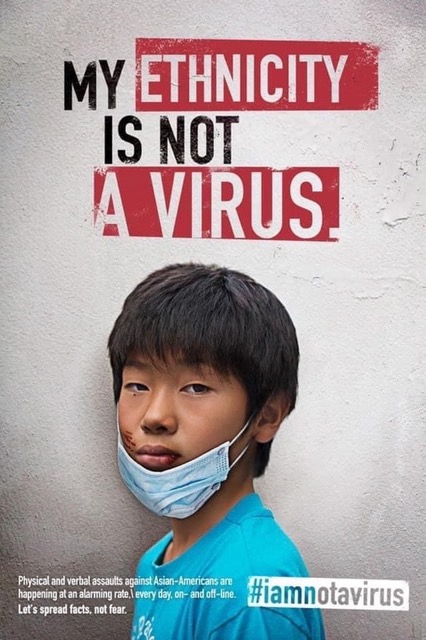
From the anti-Asian violence and xenophobia that have spiked since the early days of the pandemic (and reemerged in the national consciousness) to the ways that COVID-19 has disproportionately impacted Pacific Islander communities and Asian immigrant service and healthcare workers, Asian/Pacific/Americans are too often at the center of COVID-19 conversations as objects of anger and curiosity. Documenting the experiences of those whose stories remain untold is essential not just for our communities’ own process of healing and storytelling, but for all of us to learn from this moment now and into the future.
In addition to this documentation and story-sharing work, the project has collected artifacts that reflect the A/P/A experience at the intersection of several historic events—a global pandemic, a transnational Black Lives Matter Movement, and the 2020 U.S. Presidential election. We are guided by the hope that this community led project offers space for thinking about the parallels, intimacies, and possibilities for solidarity between Asian/Pacific Americans and the communities that are most impacted by these seismic shifts in our history.
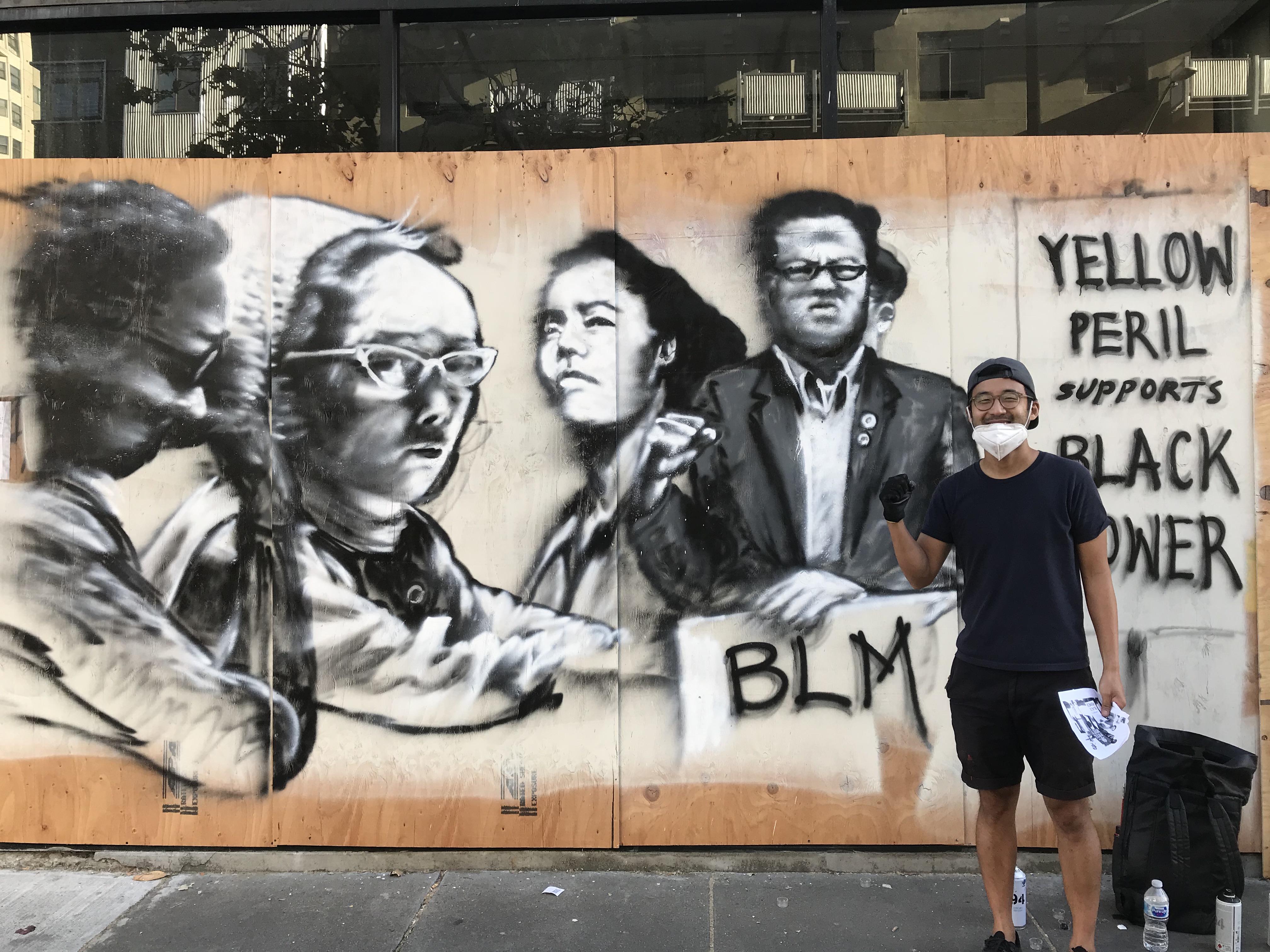
To this end, this public memory project is intended to be broad in scope. While we believe in the necessity of documenting the experiences of Asian/Pacific/Americans at this time, we understand that they are not detached from the experiences of the other communities to which we belong, create, and seek solidarity with. Fighting systemic racism; whether it is a COVID based anti-Asian hate crime or the tragic deaths of African Americans at the hand of the police, must be seen as a unified movement for racial justice. As we bear witness to the devastating impact of the COVID-19 pandemic on Asian/Pacific/Americans in the midst of protests against the killings of George Floyd, Breonna Taylor, and so many other Black people at the hands of police and vigilantes, intersectionality and cross-racial solidarity are the critical lens through which we have engaged in the complicated work of educating our own communities about state violence and white supremacy.
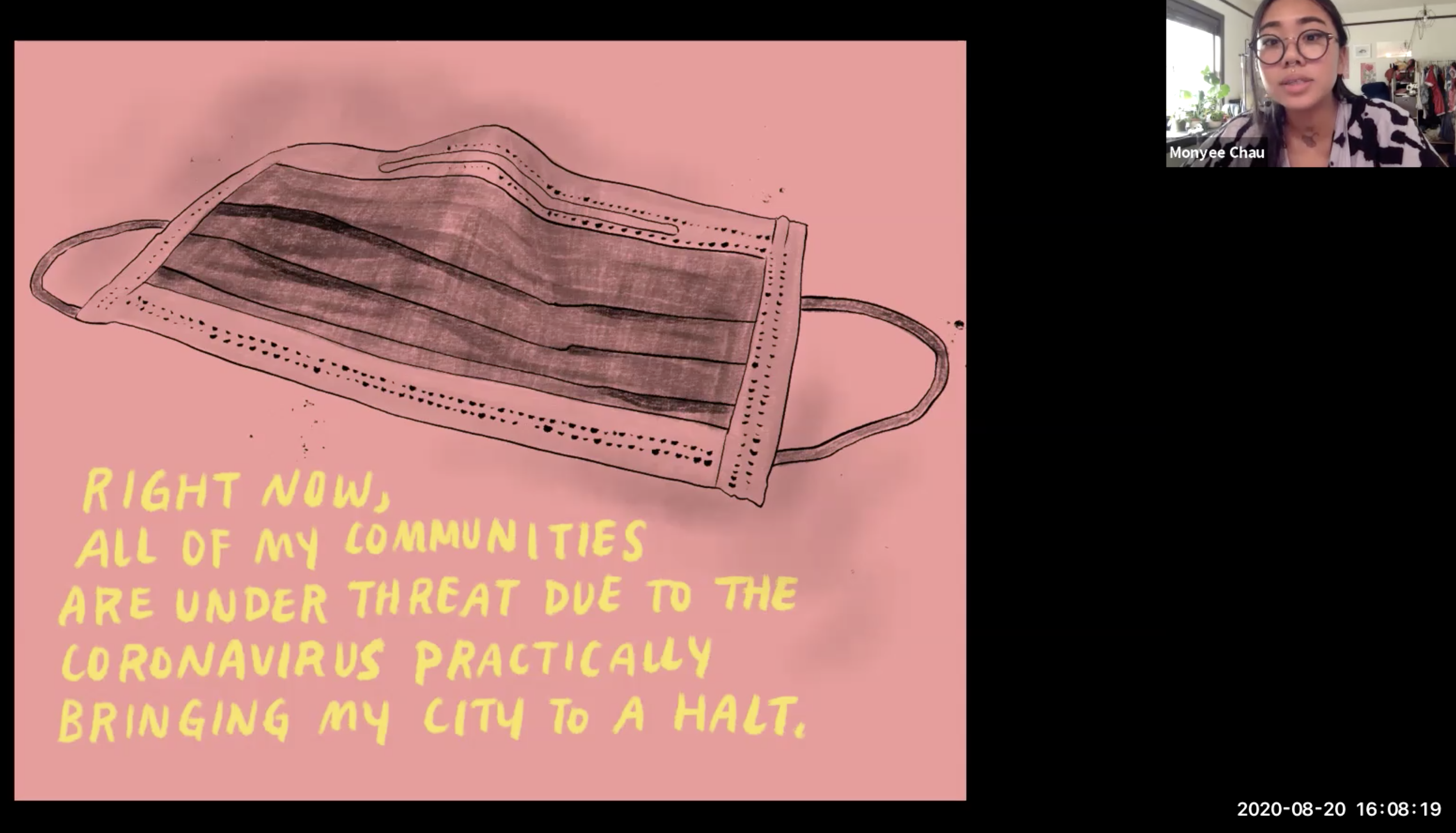
Next spring, we will be planning an exhibition of the artifacts and interviews from our archives. Our community curated ‘Archives as Memorial’ exhibition will be premised on the idea that memory and meaning are built concurrently, and that all of us are part of a shared community experiencing unprecedented trauma. By opening up our project to the public, we seek to build an ethics of care, community and access, as we reframe the archives into a space of collectivity during a time of immense pain and isolation. How we process and grieve, construct memory and make meaning, and how we take stock now and into the future is at the core of these efforts. ‘Archives as Memorial’ will memorialize the devasting impact of the pandemic, provide a historical record of events as they unfold, and engage with our communities as we move towards a post-Covid world.
Leading up to this exhibition, in December 2020, we will be presenting "On Community Care: Documenting A/P/A Voices During Covid-19", a public program featuring the stories of Asian/ Pacific/Americans and the mutual aid and community care efforts they have organized in response to the pandemic, the economic crisis and national movements for racial justice. This program will be co-sponsored by Monument Lab and the NY Center for Global Asia. In February 2020, A/P/A Voices will be holding its first day-long archive-a-thon; an open call for digital artifacts in the form of media, art, film and music that document and bear witness to this historic moment.
As we develop A/P/A Voices into a more expansive community archives project we find ourselves asking the following questions:
How can we activate the archives as a site of collective memory?
Can the archives be reimagined as a public space? As we contemplate what will replace a landscape littered with toppled monuments, how can our shared histories redefine the function of public spaces and public art? Putting an end to the increased privatization and surveillance of our parks, plazas, city streets and urban squares, returning public spaces to the public—and restoring them as spaces of discourse, learning and ownership, would be one way that memory workers and community archivists can reshape and honor our shared past. Through public programs like On Community Care, we are also seeking ways to break through the isolation brought about by social distancing and fear. We are shifting our priorities to include repair, healing and radical care practices that will help us rebuild and sustain the critical connections that are so necessary for the health and future of our movements for social change.
